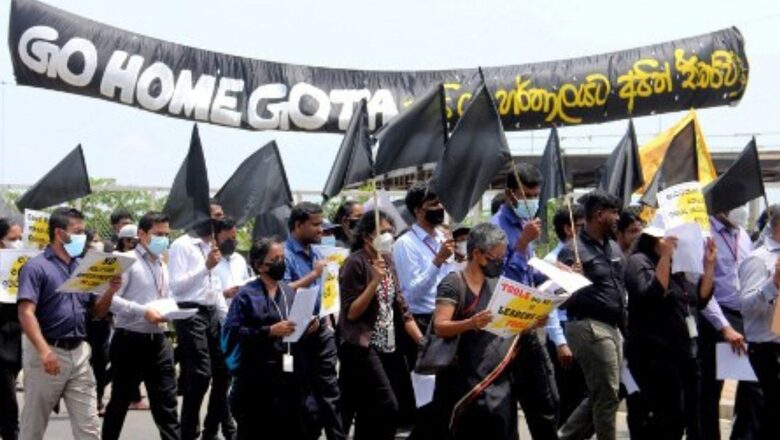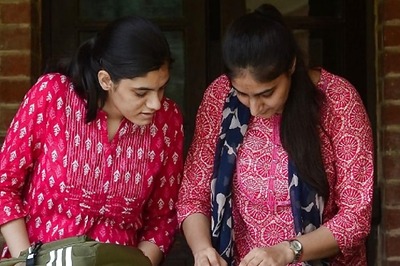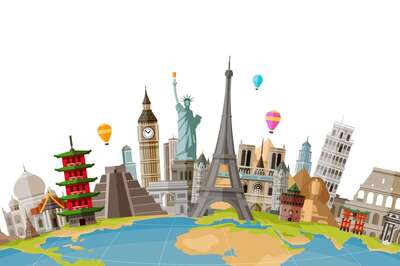
views
Sri Lanka’s deepening economic crisis took a turn for the worse on Friday night when President Gotabaya Rajapaksa declared a state of emergency in the island nation amid mounting public resentment.
Sri Lanka’s 22-million population has been facing acute shortages of food, fuel, and medicines for months, bringing tens of thousands onto the streets to demand the resignation of Rajapaksa and other members of his powerful ruling family.
The president and his family have made it clear that they will not step down despite escalating demonstrations across the island.
However, the mess is not limited to Sri Lanka alone. The economic situation of India’s other two neighbours — Nepal and Pakistan — is also in the doldrums due to poor governance, rising external debt, and food-fuel inflation.
Nepal
Last week, Nepal banned imported liquor, playing cards and nearly a dozen other “non-essential” goods to address the Himalayan country’s widening trade deficit and declining foreign currency reserves.
Falling remittances and tourism earnings, combined with a blowout budget deficit, have severely dented Nepal’s fiscal position during the Covid-19 pandemic.
The central bank has said reserves are only sufficient to cover just over six months of imports, down from 10 months in mid-2021.
Since July 2021, Nepal has seen a decline in forex reserves due to the surging imports, declining inflows of remittance and meagre earnings from tourism and exports. By February 2022, the Himalayan country’s gross forex reserves had decreased 17 per cent to $9.75 billion from $11.75 billion in mid-July 2021, according to central bank figures.
The government has also decided to introduce two public holidays – on Saturday and Sunday – every week, with effect from May 15.
The decision has been taken in a bid to save consumption of petroleum products and thereby save foreign currency. It has been decided to maintain office hours from 9:30 AM to 5:30 PM with effect from May 15 as a trial.
As per the existing practice, the government offices operate from 10 am to 5 pm in the summer six days a week, except for Friday when the office remains open only for five hours.
The government, however, is confident of riding out the crisis. During a parliamentary finance committee meeting in December, Finance Minister Janardan Sharma expressed confidence that conditions were favorable for achieving the targeted 7 per cent growth this year.
Pakistan
Foreign exchange reserves have dropped to a 28-month low in Pakistan to below $11bn, barely enough to cover imports for the next two months. The last time forex reserves were below this level was in December 2019, Al Jazeera reported.
In the first nine months of the current financial year that started in July, Pakistan accrued a negative trade deficit in goods and services of $33.28bn, government data show. The current account deficit for the period had jumped to $13.17bn, up from $275m for the same period of last year.
This has jacked up the dollar rate which, at 190 Pakistani rupee to the dollar in the open market earlier this month, has touched a new high in the country.
However, Pakistan, too, is confident of tiding over the crisis and says it will not be in dire straits like neighbouring Sri Lanka.
In an interview to Al Jazeera, Pakistan’s finance minister Miftah Ismail said the country had a “strategy” to increase reserves and “you will see that they will start to increase”.
China’s ‘Debt-trap diplomacy’
Notably, all the three countries under severe economic stress are China’s fair-weather friends and under serious debt of Beijing on account of commercial loans from Chinese EXIM bank.
The nations are part of China’s Belt and Road Initiative (BRI) — a global infrastructure development strategy developed by the Chinese to invest in nearly 70 countries to build ports, roads, bridges, dams, power stations and railroads.
However, the US has termed this “debt-trap diplomacy”, popularised by the Trump administration. It essentially means a richer country lending to poorer countries that are rich in resources or geographically strategic. The loans are often not sustainable and the poorer countries are forced to give up their assets or political leverage.
India, too, has cautioned against the practice, with Prime Minister Narendra Modi addressing the issue in 2020 while virtually inaugurating the new Supreme Court building in Mauritius. “History has taught us that in the name of development partnerships, nations were forced into dependence partnerships. It gave rise to colonial and imperial rule. It gave rise to global power blocks,” he had said.
According to Business Today, around 40 countries that felt the benevolence of China have the rug pulled from under their feet. Among these are Laos, Zambia and Kyrgyzstan too.
Read all the Latest News here




















Comments
0 comment